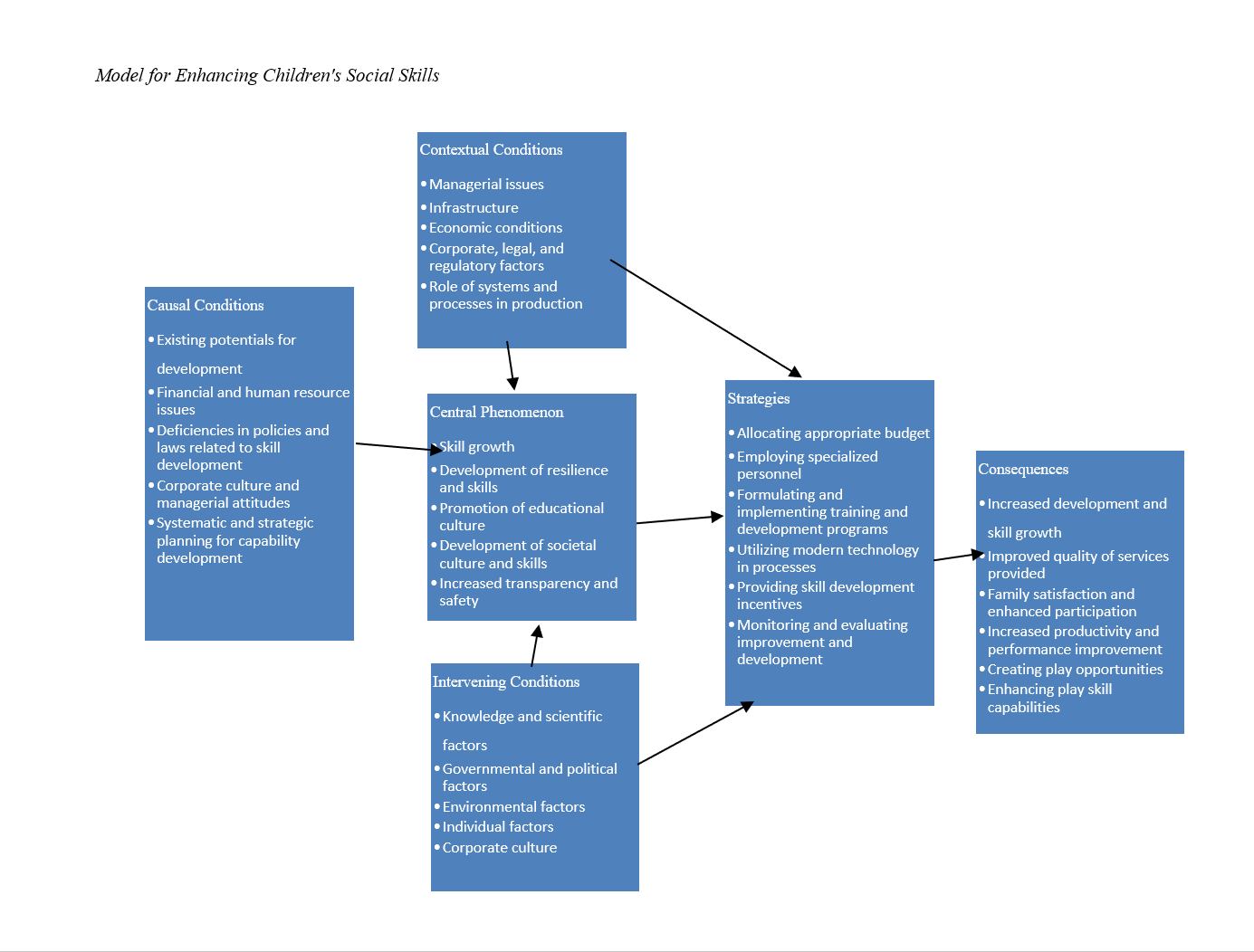Formulating a Model for Enhancing Children's Social Skills as a Prerequisite for Development
Keywords:
Conceptual Model, Children's Social Skills, Development, ToysAbstract
Objective: The aim of the present research was to provide a model for enhancing children's social skills as a prerequisite for development.
Methodology: The research method was qualitative, and the target population included managers of toy manufacturing companies, experienced specialists, experts in the toy industry, policymakers, and university professors. The sample size was selected purposefully until theoretical saturation from the aforementioned statistical population. In this phase, using an exploratory semi-structured interview method among the statistical population, the factors and components of children's social skills were identified. With the help of these factors and indicators, a grounded theory-based model for enhancing children's social skills was designed.
Findings: According to the results and outputs obtained from the interviews, the factors affecting the model for enhancing children's social skills include causal conditions (the existing potential of games for development, financial and human resource issues in game design and production, deficiencies in policies and laws related to skill development in children, corporate culture and management attitudes, systematic and strategic planning for capability development), contextual conditions (management issues, infrastructure, economic conditions, corporate, legal and regulatory factors, corporate systems and processes), intervening conditions (knowledge and scientific factors, governmental and political factors, environmental factors, individual factors, corporate culture), strategies (allocating appropriate budgets, employing specialized personnel, formulating and implementing training and development programs, using modern technology in processes, providing development incentives, monitoring and evaluating improvement and development), and outcomes (increased skill development and growth, improved quality of services provided, family satisfaction and enhanced participation, increased productivity and improved performance, creating play opportunities, enhancing play skill capabilities).
Conclusion: Therefore, studying these movements and providing opportunities for their nurturing and growth strengthens and even repairs mental abilities. What children learn at home or kindergarten, they think about and derive many meanings from these phenomena when repeated in the form of games and physical activities
Downloads

Published
Issue
Section
License
Copyright (c) 2024 Fatemeh Rahmani (Author); Majid Radfar (Corresponding Author); Alieh Shekarbeygi (Author)

This work is licensed under a Creative Commons Attribution-NonCommercial 4.0 International License.















